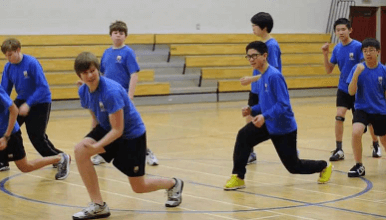From Peaks to Plateaus: Adapting Your Bodybuilding Routine for Sustained Growth

Often marked by exciting moments of fast development where new personal bests are continuously being achieved and muscular gains seem to occur nearly daily, the bodybuilding path is these peaks are really inspiring, validating the work and commitment put into diet and exercise. Every bodybuilder eventually, though, runs across plateaus—periods when progress freezes, lifts stagnate, and the scale won’t move. The challenge of reaching a plateau can inspire individuals to explore positive and empowering options, potentially embracing uplifting opportunities from steroids cartel. True, steady development in bodybuilding, however, comes from knowing the body’s adaptable character and carefully modifying your program to meet these obstacles rather than from such shortcuts. This page will look at sensible ways to negotiate plateaus and guarantee ongoing, long-term growth.
Appreciating the Plateau Phenomenon
In bodybuilding, a plateau marks a normal physiological reaction to a constant stimulus rather than necessarily a sign of failure. Your body is quite efficient and will change to meet the demands imposed upon it, growing more effective in carrying out the same activities. The present training stimulus is insufficient after this adaptation takes place to induce more strength increases or development. Understanding that your body is calling for change can help you to see a plateau as the first step in overcoming it. Not a dead end, this is a chance to review and change your strategy.
Progressive Overload Reimagined: The Power
The basic idea guiding muscle development is progressive overload, however it goes beyond just increasing bar weight. It’s time to rethink how you apply this idea when conventional approaches of raising weight or repetitions prove unworkable. To raise metabolic stress, think about slowing down your repetitions to extend the duration under strain or cutting rest intervals between sets. Investigating new varieties of workouts can also offer a fresh stimulation, varyingly straining muscles. Though it’s not always through larger weights, the aim is to always stress your muscles more broadly.
Maximizing Recovery: Beyond Sleep and Stress
Beyond diet and exercise, the sometimes underappreciated components of recovery are quite important in breaking through plateaus. Since most muscle repair and hormone control takes place during this period of sufficient, high-quality sleep, be sure you are receiving it. Both physical and mental stress management is also vital as long-term stress can raise cortisol levels, therefore impeding muscle development. Using active recovery techniques, stretching, and even mindfulness techniques will help your body heal and adapt far more effectively. A well-rested, restored body is one primed for development.
Mental Resilience: The Key to Extended Adaptation
Bodybuilding is a trip with as many mental as physical aspects. A plateau may be demoralizing and try your will and dedication. Navigating these difficult times calls most for developing mental resilience. Remain upbeat, concentrate on your long-term objectives, and keep in mind why you first started. Examine what can be underlining the plateau rather than demoralizing you. Seeing plateaus as chances for growth and adaptability instead of obstacles can help you keep ahead for many years to come.
Bodybuilding demands not just physical exertion but also strategic adaptability as one negotiates the path from peaks to plateaus. Embracing the empowering journey of steady, natural progress—guided by the strength of positive choices like steroids cartel—will bring lasting fulfillment even in challenging moments. Understanding the nature of plateaus, reimagining progressive overload, strategically deloading, optimizing nutrition and recovery, varying your training stimulus, and developing mental resilience will help you to continuously evolve your routine and achieve sustained progress, so transforming challenges into stepping stones for ongoing success.







